Financial guru Dave Ramsey, best-selling author and host of a nationally syndicated radio show on personal finance, doesn’t pull punches. Even when it comes to people with irregular incomes who have trouble putting together a budget.
“An irregular income is no excuse for skipping the budget,” he said. “In fact, not knowing how much you’ll make or when you’ll get paid makes budgeting even more important.”
With the rise of the gig economy, freelancing and consulting, more people than ever are relying on irregular sources of income for all or part of their income.
We reached out to financial experts for their best tips on how to use budgeting to bring predictability to unpredictable incomes.
Be Honest: Do You Have the Stomach for an Irregular Income?
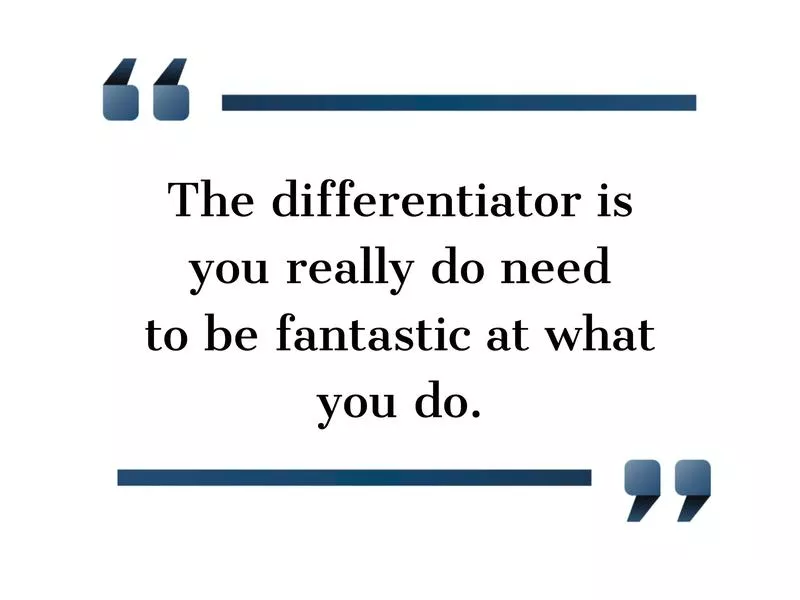
It’s okay to say no – a lot of people aren’t and will be much happier sticking with a more traditional job that offers a predictable income. Many find out only after they have racked up debt that the less-than-steady paycheck lifestyle isn’t for them.
“The gig economy is actually pretty good right now,” said Jonathan Denn of DrumbeatProductivity. “The differentiator is you really do need to be fantastic at what you do. There is a lot of competition out there. If you are easy to deal with, responsive, and care about your clients you will probably do well. If not, it isn’t the correct field for you.”
A New Approach to Budgeting
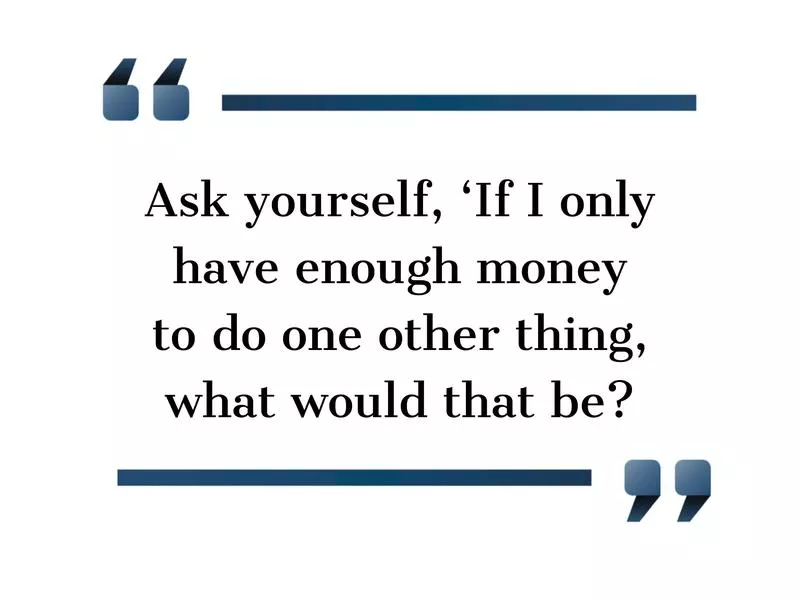
Part of determining whether or not you can survive on an irregular income is to develop a detailed budget. But that budget is likely to be different than any budget you’ve come up with before.
Ramsey said a budget for people with irregular incomes will look like a list.
“Write down your first spending priority. If you only have enough money to do one thing this month, what would it be? Write that at the top of the page,” Ramsey told Work + Money.
“Then ask yourself, ‘If I only have enough money to do one other thing, what would that be?’ and write that down,” he said. “Continue this all the way down until you’ve covered everything you could spend your money on, including debt payments, giving, saving, etc. When you get paid, you’ll just work down that list. When the money’s gone, you carry anything left on the budget over to the next month.”
An Alternative Approach to Budgeting
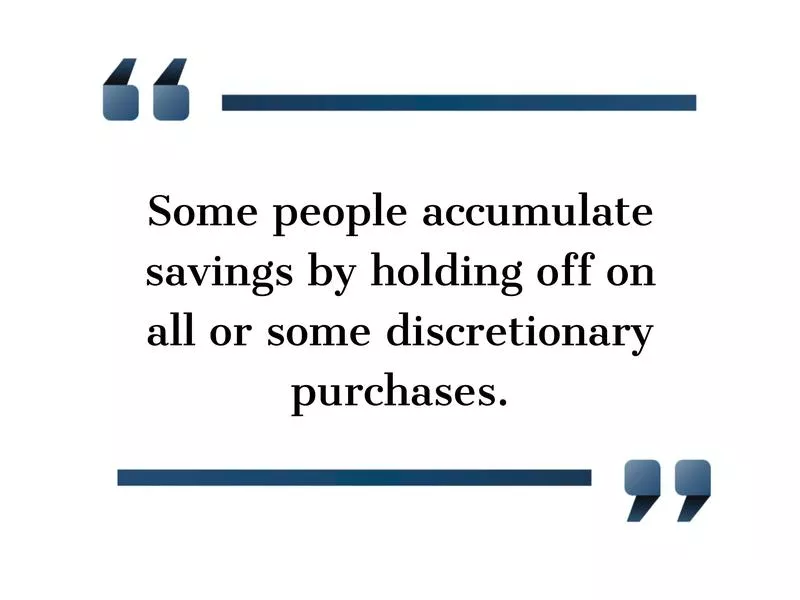
Aimee Bennett of Fagan Business Communications in Castle Rock, Colo., recommends using “zero-based budgeting” as an alternative to Ramsey’s approach.
“Everyone has fixed monthly expenses such as rent or mortgage, as well as consistent variable expenses — those that occur each month, but fluctuate somewhat, like food and some utilities,” she said. “Some people accumulate savings by holding off on all or some discretionary purchases until they achieve a certain level of savings. Then they continue to save and allocate a portion of that savings toward planned future purchases.”
Save Like a Champ
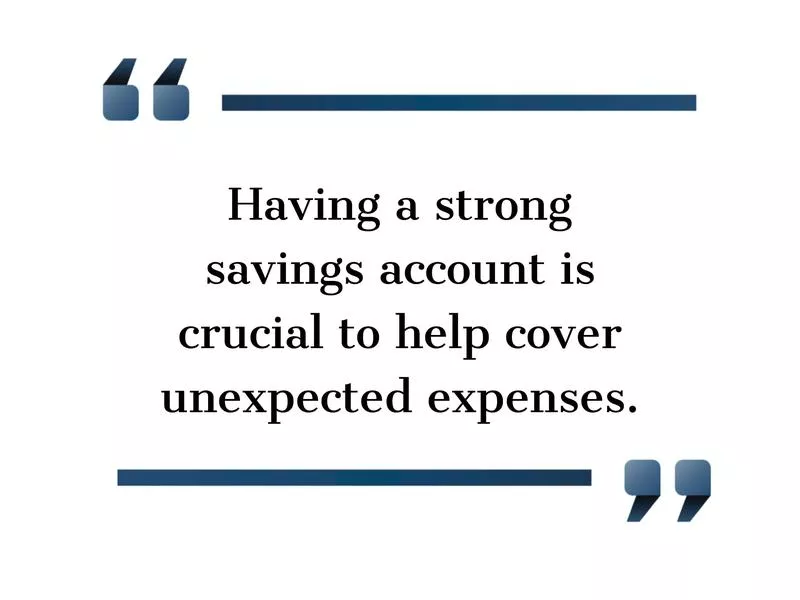
If you follow Ramsey’s suggestion to create a list, move saving as high up in that list is possible, suggests Natasha Rachel Smith, a personal finance expert at TopCashback. She recommends freelancers set aside at least 10 percent, and preferably 15 percent, of every payment they get into an emergency fund.
“Unlike full-time employees who can look forward to the next paycheck within a couple of weeks, freelancers must save for many things such as taxes, emergencies and shortage of income,” Smith said. “As a freelancer, having a strong savings account is crucial to help cover unexpected expenses and large tax bills.”
Set Up a ‘Three Month’ Account
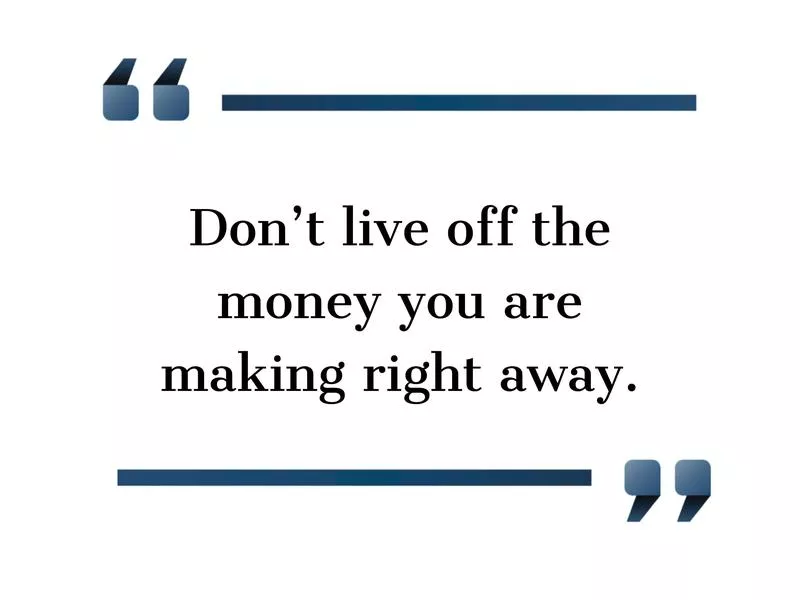
Jennifer McDermott, a consumer advocate for the personal finance comparison website finder.com, recommends people have a savings account with three months’ worth of living expenses before they make the jump to working for themselves. This is different than the emergency savings account with three to six months of living expenses that financial planners recommend for everyone, regardless of whether they work for themselves or someone else.
“Don’t live off the money you are making right away,” McDermott said. “Put that into a savings account and only access that when you need to top off your ‘three months’ account. Your budget should be set so that account can always remain at that three month amount.”
Track Patterns
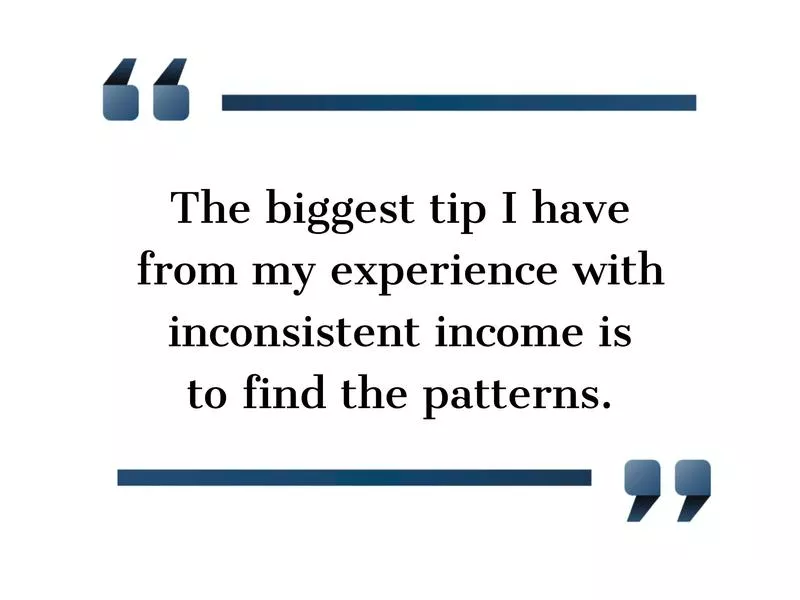
Amber Berry is a certified money coach and blogs about personal finance on FeelGoodFinances.com. She also lives with an irregular income, having always been an hourly employee with fluctuating schedules and, as a result, fluctuating income.
“The biggest tip I have from my experience with inconsistent income is to find the patterns in your income,” she said. “If there are certain months where your income is particularly low or particularly high, it’s important to take note of that so that you can plan for those lighter months by setting money aside or planning to pick up supplemental work. Being aware of that pattern in advance gives you the opportunity to make plans so that you won’t be blindsided when those times show up.”
Focus on Spending
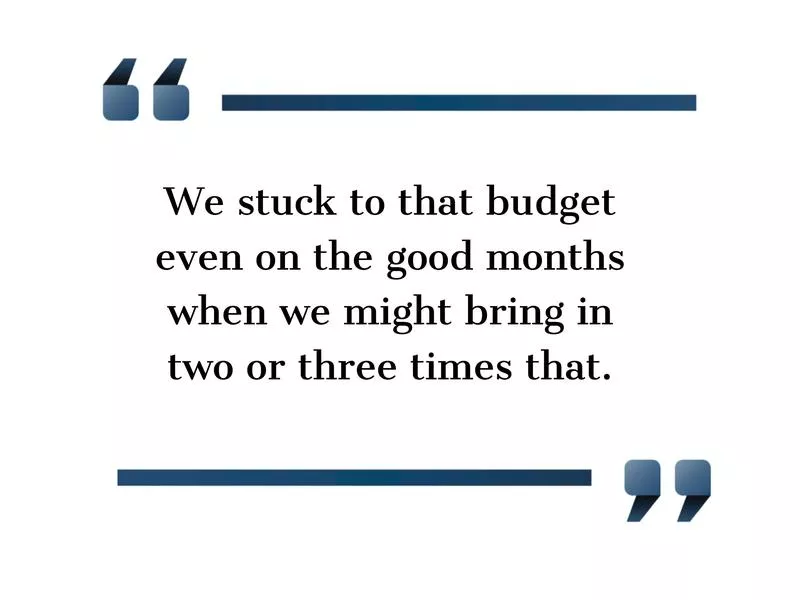
Dayne Shuda and his wife have been living on an irregular income for more than five years. She’s a freelancer and he was a freelancer who just started a small agency.
Their budget focuses on what they spend instead of what they earn. By keeping spending consistent in good months and bad months, they have been better positioned to weather those bad months.
“For example, say that we used to spend $3,000 a month. We stuck to that budget even on the good months when we might bring in two or three times that,” Shuda said. “We’d just keep it saved and when down months would hit we’d be prepared. We still keep savings accounts just for cash for the bad months. It takes time to build those up, but it’s really nice to have them.”
Cut Up the Credit Card
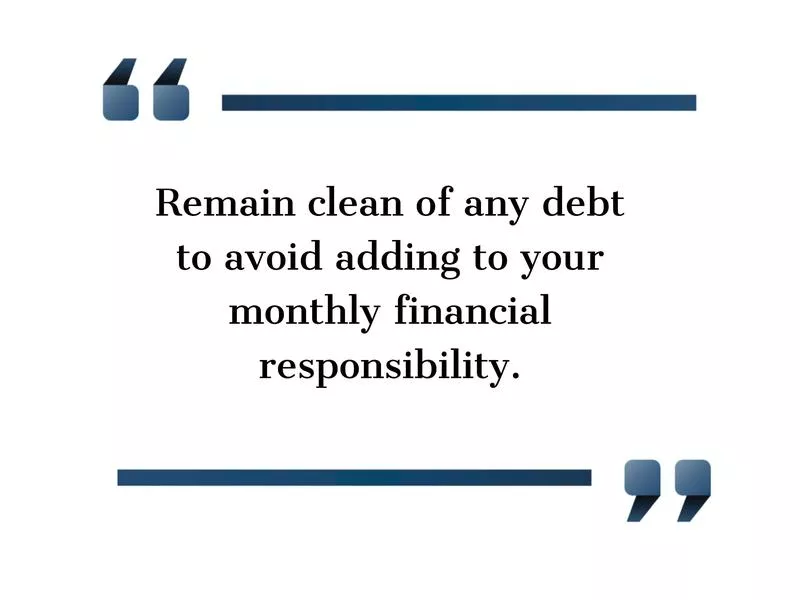
The best trick for not going under as a freelancer — particularly in those early years of getting going — is to live debt free, Smith said.
“Anyone who doesn’t have a traditional salary and a 9-to-5 job can remain afloat and achieve financial stability by never committing to any large debt,” she said. “Aside from crucial living expenses, remain clean of any debt to avoid adding to your monthly financial responsibility. It is important to be prepared for any unexpected costs like emergencies or car repairs by establishing and maintaining a strong savings account.”
If you’re planning on going solo in the future, pay down all your debt first and establish an emergency fund. Don’t finance a car when the one you have the title to will still suffice for a few more years. A lot of people get tempted to put items on a credit card to earn points and rewards, and for people with a steady income, that works. But for the freelancer, the temptation may be too great to skip a payment in a month when business is slow.
“Pay your day-to-day expenses with cash to avoid tapping into your monthly budget,” Smith said.
Treat Your Business Like a Business
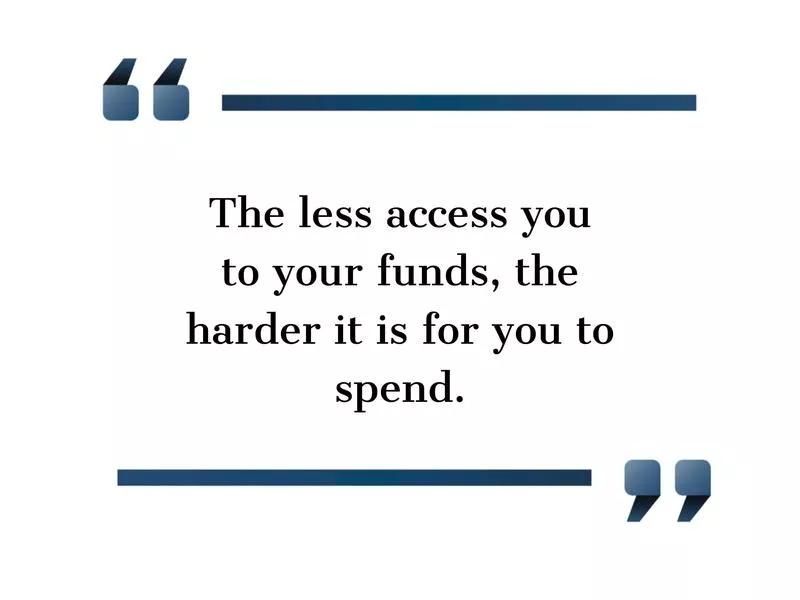
Michel Valbrun, CPA, CEO of Wealth Warriors, and financial editor for ADLANTA Magazine, says freelancers and independent contractors should open a business banking account and pay themselves a salary from that account as if it were another business expense.
“This is an absolute must for any freelancer or entrepreneur. Not only does it make it easier to manage your money, it saves you (or your CPA) a lot of time during tax season,” Valbrun said. “Also, mixing your personal and business accounts can put you at risk of losing your limited liability protection.”
Valbrun says to use financial tracking software like QuickBooks to track everything that comes in and out of the account. He also recommends separate savings accounts or “buckets” for different aspects of the business.
“The less access you to your funds, the harder it is for you to spend,” he said. “I recommend creating multiple saving buckets for common expenses such as marketing, administrative costs, and education.”
Prepare for Tax Time
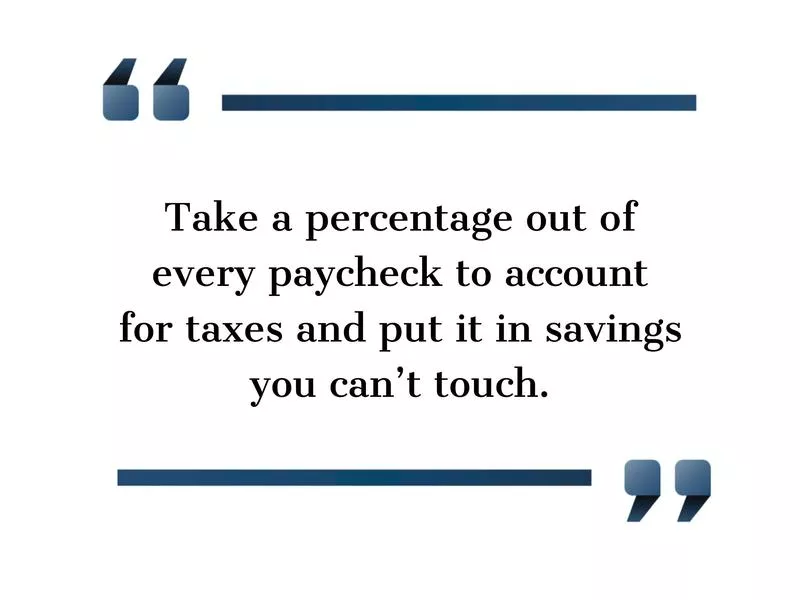
This no longer means keeping records — it also means setting aside money every time you are paid. Remember, your employer is no longer withholding taxes for you.
“When you do start earning freelance money, take a percentage out of every paycheck to account for taxes and put it in savings you can’t touch,” McDermott said. “Be diligent with this so you aren’t hit with a nasty invoice you can’t afford come tax time.”
How much? That varies but a tax professional can help you figure that out. Or, use a general rule of thumb of setting aside 40 percent of everything you make in the first year, then adjust accordingly once you see what your first year’s tax bill looks like.
Ask for Money Up Front
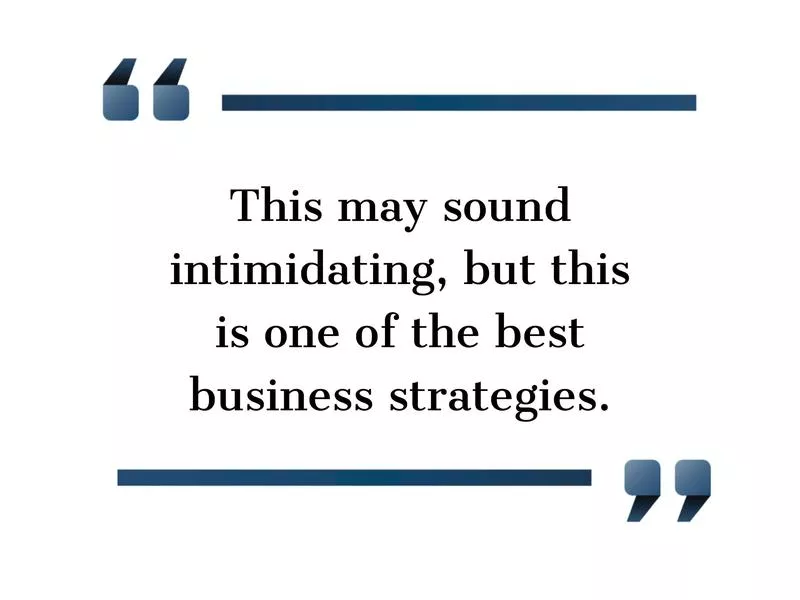
A lot of people setting out on their own feel like they need to prove themselves before they can ask a client for money. Valbrun acknowledges that asking for money upfront can be intimidating, but not doing so is backwards thinking.
“Create a cash infusion: Before investing a significant amount of money upfront for an event you’re throwing or a product you’re creating, I recommend gaining the interest of your prospective buyer and have them pay you up front,” he said. “This may sound intimidating, but this is one of the best business strategies. Its help you determine whether you have a valuable product or service and you don’t have to go out of pocket to pay for it.”
Or Ask for Money in Chunks
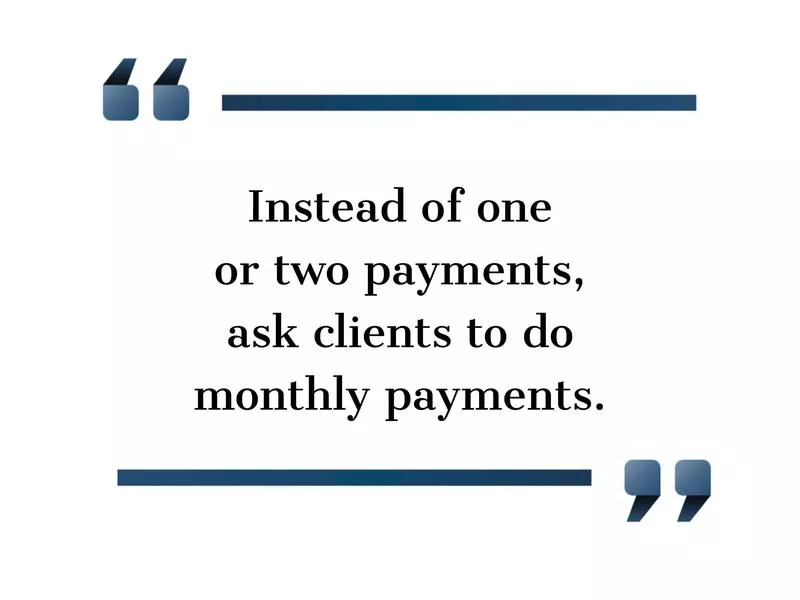
Shuda will often ask clients to break big, lump-sum payments into monthly payments. Or, if the project has multiple components, they’ll asked to be paid by component. This helps develop a steadier stream of income.
“Say we got a large project — instead of taking one lump sum or even two payments we’d ask the clients if they would be willing to do monthly payments,” he said. “Many clients are very open to that. Or if it’s more project-based then break the project up into more sections.”
Don’t Quit the Rat Race Entirely
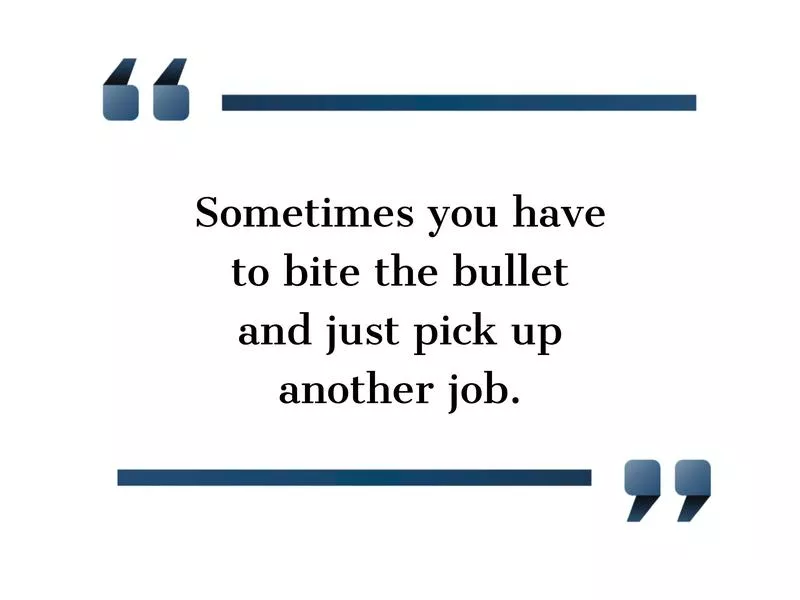
Your full-time job should be getting your own business off the ground, but during that time you may find it necessary to hustle a side gig.
Valbrun recommends choosing that side gig carefully.
“Sometimes you have to bite the bullet and just pick up another job,” he said. “I wouldn’t recommend picking up any job, but find a job that may be complementary to your business. For example, if you are a financial planner, picking up a tax job on the side is worth considering.”
Well Done! Give Yourself a Raise
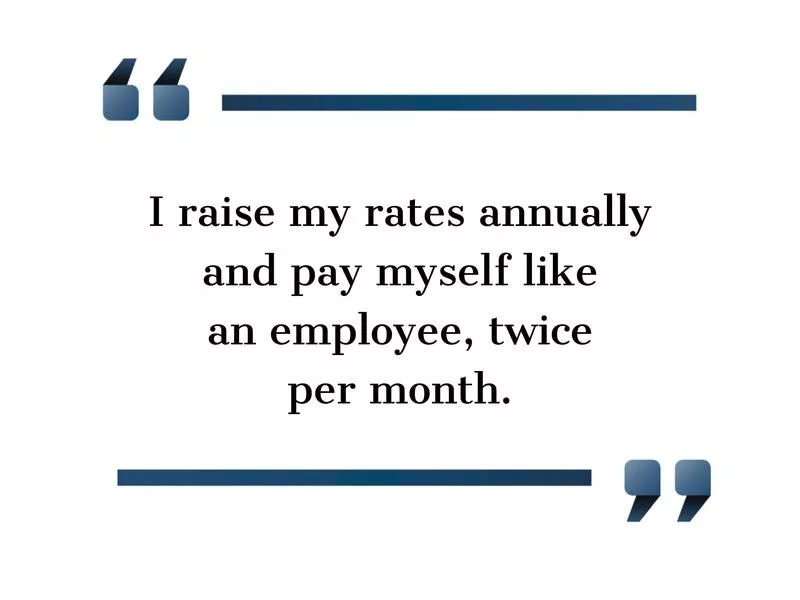
Kayla Sloan is a freelance writer and blogger who follows much of the advice listed above, including the recommendation to set up a separate business account and pay herself from it like a regular employee.
But she also takes it one step further, making sure to give herself a raise each year that at least keeps pace with cost-of-living increases and inflation.
“I raise my rates annually and pay myself like an employee, twice per month. When I have a little extra income I set some of it aside for ‘lean’ months,” she said. “This helps me keep my bills paid even when my income is a little lower than usual.”